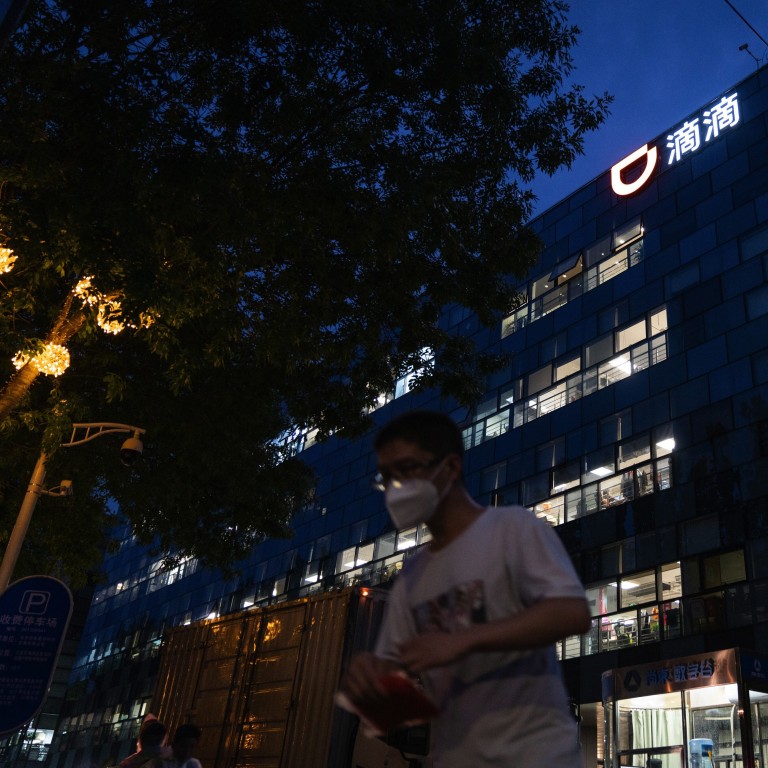
Didi Chuxing’s mini app disappears from WeChat and Alipay for new users after Beijing orders it to halt new account registrations
- The company’s mini program no longer appears in searches by new users in China’s biggest super apps
- Didi had previously warned that the ban on new user registration will negatively impact revenues
On Wednesday, the ride-hailing giant’s mini program did not appear in searches by new users within WeChat, a super app run by Tencent Holdings, and Alipay, owned by Ant Group, an affiliate of Alibaba Group Holding. However, those who had previously accessed the mini app could still find and use it.
Didi Chuxing has also disappeared from WeChat’s payment page for third-party services for some users. It remains unclear how many users are affected, but the removal could negatively affect Didi’s revenue given that it was a widely used entry point to the service.
Tencent, Ant Group and Didi did not immediately respond to requests for comment.
Both Tencent and Alibaba are Didi shareholders with Martin Lau, president of Tencent, and Daniel Zhang, CEO of Alibaba, sitting on the Beijing-based company’s board of directors.
Didi Chuxing ‘forced its way’ to a New York listing – sources
According to Didi’s prospectus, Tencent had a 6.8 per cent equity stake in Didi before the IPO. Alibaba’s stake was not disclosed as the Hangzhou-based e-commerce giant is not a principal shareholder.
Alibaba owns the South China Morning Post.
Didi shares plunged 20 per cent in New York on Tuesday, after falling more than 5 per cent in the previous trading day in response to Beijing’s probe and punishment.


